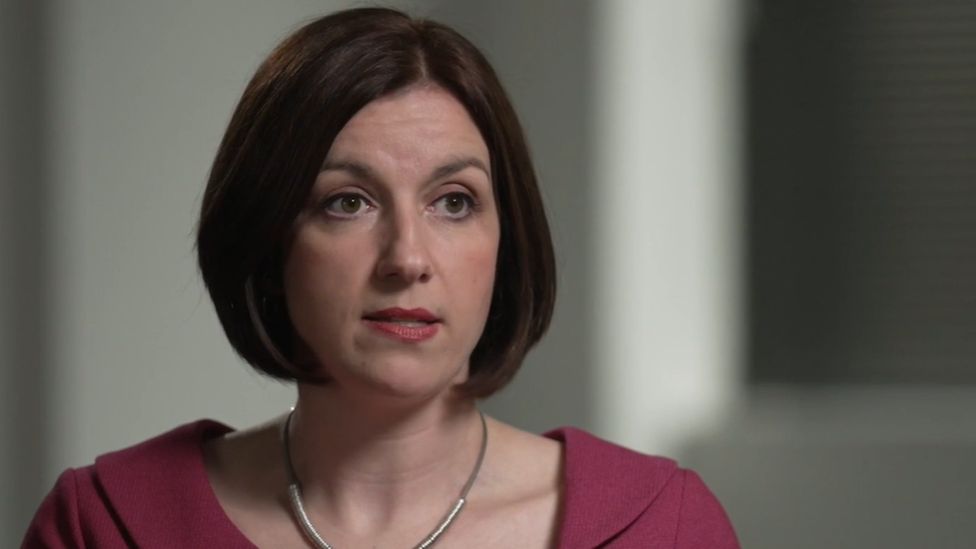ARTICLE AD BOX

Labour's shadow education secretary said the government "risk crashing the childcare system just as they crashed the economy under Liz Truss"
By Nicholas Watt
Newsnight political editor
Labour will not commit to the government's £4bn expansion of free childcare, the shadow education secretary has said.
Bridget Phillipson has commissioned a review of the scheme, which would see eligible parents in England get 30 free hours of childcare by September 2025.
She told BBC Newsnight the current system is not equipped to deal with extra demand and was a "total mess".
The government says the plan will alleviate cost of living pressures.
Education Secretary Gillian Keegan called the commitment the "biggest expansion in childcare in our country's history", telling the BBC it will help working parents and mean more women can get back into work after having children.
However, while Labour says it is committed to the "real opportunity" of a free childcare system reformed on its terms to ensure that children can succeed at the earliest opportunity in their lives, the party believes the existing system will not be able to provide the extra places.
In the March 2023 Budget, Chancellor Jeremy Hunt committed the government to providing 30 hours of free childcare per week in term-time to working parents with children over the age of nine months.
At the moment working parents with children aged three and four are eligible for 30 hours of free childcare. If at least one parent earns more than £100,000 that is limited to 15 hours a week.
The expanded scheme is due to be introduced in three phases:
- From next Monday, 1 April, there will be 15 hours of free childcare for working parents with two-year-olds
- From September this year that will be extended to children from nine months up
- From September 2025 that will be doubled to 30 hours a week for eligible parents
The Institute for Fiscal Studies has estimated the scheme will involve a doubling of the childcare free entitlement budget from £4bn last year to £8bn by 2027-28.
Some childcare providers have warned they will not be able to recruit enough staff in time and that the eventual public funds they will receive, via local authorities, will not fully cover their costs.
Ms Phillipson told Newsnight: "This is Liz Truss all over again. They've got no plan about how they make it happen. I think they risk crashing the childcare system just as they crashed the economy under Liz Truss.
"We've heard from providers that they are just going to really struggle to make this happen.
"And what we hear from parents right across the country is that when they go and try to access these entitlements, these commitments that the Conservatives have made, the places just aren't there."
Labour has commissioned Sir David Bell, the former chief inspector of Ofsted, to conduct a review because the party believes the government has failed to prepare the childcare system for its changes.
Asked by BBC Newsnight whether the review and her remarks meant that Labour is planning to go "back to the drawing board" on childcare, Ms Phillipson declined to give a commitment to adopting the government scheme if it is in power in 2025.
She said the plan as it stands is "just a tacking on of additional commitments that I don't think is working, either for providers or for parents".
Asked about the scheme, Ms Keegan took issue with some childcare providers who have said the eventual rate per hour they will receive from government will not fully cover their costs, saying the government has increased the amount it gives to providers.
She said it would help women return to work, adding: "In my career, I worked for a long time in many, many businesses and it was very obvious when women [would] be racing up the career ladder.
"And then when they started a family often their career would take a pause or even a backward step sometimes if they left and then tried to get back into the workplace."
Christine Farquharson, associate director of the Institute for Fiscal Studies, said the childcare expansion needs careful preparation.
She told Newsnight: "With these new entitlements, the government is going to go from paying for around 50% of pre-school child care hours in England to around 80%.
"Now, when you're buying 80% of the market for anything you have to be really confident that you've got that price right - because if you set it too high, you end up paying a lot more than you might have had to, particularly at a time that other public services are under immense pressure.
"But if you set it too low you may find that providers are not actually willing to deliver these new entitlements, they're not willing to sign up to this new system."

 1 year ago
80
1 year ago
80








 English (US) ·
English (US) ·